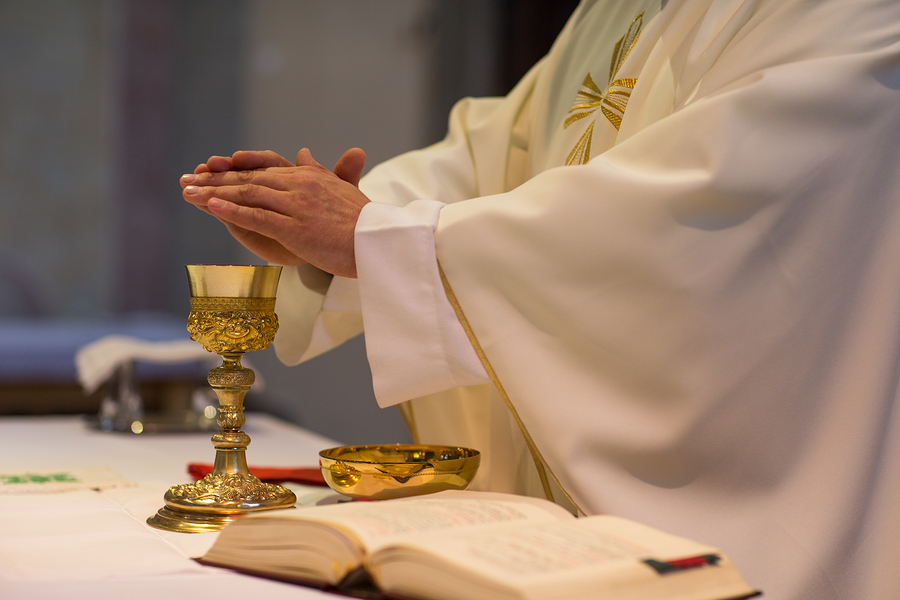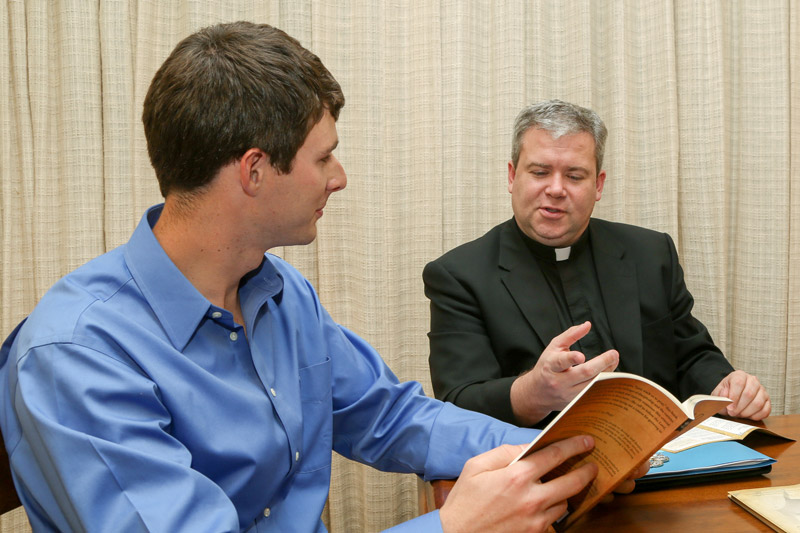
Q: I’ve been told by some priests that a person should not receive holy Communion if they have a mortal sin on their soul, but other priests say differently. Which is it? (Charleston, SC)
A: The reception of holy Communion is one of the most sacred acts of the Catholic Christian. It is our sharing in the very Body and Blood of Jesus Christ. Since it is so important, the believer is called to approach it in a “worthy manner,” as spiritually prepared as possible (cf. 1 Cor 11:27-29). This spiritual preparation includes being free from all serious sin.
And so, your question is a delicate one that requires some very important distinctions. My answer is going to rely on Canon 916 of the Church’s law, called the Code of Canon Law. This code governs all internal aspects of the Church’s life.
If a Catholic is aware of grave sin on her soul, she should go to the sacrament of reconciliation as soon as possible. This is the standard practice of the Church and the one that is expected of the believer.
If the sacrament is not possible and there is a serious reason (such as scandal or public embarrassment), then the person can receive holy Communion so long as she has made a perfect Act of Contrition and resolved to go to the sacrament of reconciliation as soon as possible.
A distinction should be made about the availability of reconciliation: If the sacrament is available and the person willfully neglects it, then they should avoid receiving holy Communion.
Additionally, the necessary perfect act of contrition means a person is repentant of her sins because she loves God, and not simply because she fears hell. If her contrition is less than perfect, then she should avoid holy Communion.
Both of these conditions have to be in place for a person to receive holy Communion with the knowledge of grave sin on her soul. I hope this clarifies things and helps put the question is greater perspective.
Q: Why is Michael a saint? He’s an angel and saints are humans. Please explain. (Aiken, SC)
A: As you mentioned, all the archangels, including Michael, are addressed as saints. This could cause some confusion since saints and angels are different. What’s the story here?
Well, the title saint comes from the Latin word for holy one. This is an important point linguistically but also practically. Every time we hear saint, we know we’re dealing with some aspect of holiness and goodness.
And so, the title saint applies to all human beings who have reached heaven and specifically those members of the Church who have been canonized. Canonization is the official declaration that someone is in heaven and worthy of imitation and intercession, such as St. Francis of Assisi, St. Patrick, etc. This is the popular and most well-known use of the title.
Since the word actually means holy one, however, it also has a more general use in the Church and is applied to other holy beings. For example, in reference to your question, the archangels are holy and so are also addressed as saints.
Father Jeffrey Kirby is administrator of St. Joseph Church in Chester and Our Lady of Grace Church in Lancaster. Email him your questions at askfrkirby@gmail.com.




